Resources
Date
Description
Australia’s import, terminal and storage capacity for transport fuel has increased over time to meet growth in fuel demand There has been significant investment in new and expanded storage and terminal facilities over recent years to meet demand growth in key regional centres, as evidenced in…Date
Description
Subsidising domestic alternative fuel production is not necessary for energy security The reliable supply of conventional transport fuels (petrol, diesel and jet fuel) to the Australian market is underpinned by a diversity of supply options for petroleum products from domestic refiners and…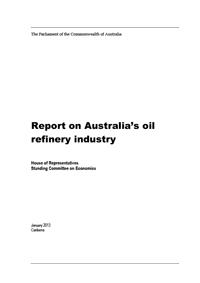
Date
Description
On 5 February 2013 the House of Representatives Standing Committee on Economics tabled its Report on 'Australia's Oil Refinery Industry', following the Committee's inquiry in 2012. The Inquiry was conducted in relation to claims and concerns being raised about the viability of Australia's oil…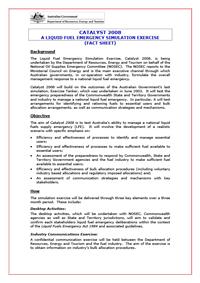
Date
Description
In 2008, the Department of Resources, Energy and Tourism (DRET), on behalf of NOSEC, undertook a Liquid Fuel Emergency Simulation Exercise – 'Catalyst 2008'. The aim of 'Catalyst 2008' was to test the emergency preparedness of the Commonwealth State and Territory Governments and industry to manage…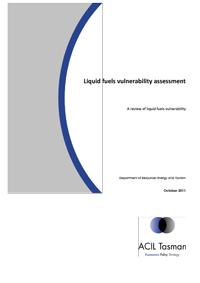 ,
, 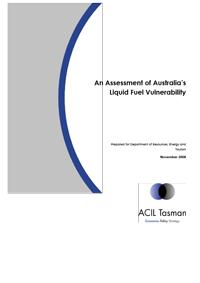
Date
Description
In 2009 and 2011, ACIL Tasman was engaged by the Federal Department of Resources, Energy and Tourism (DRET) to examine Australia's current level of liquid fuel vulnerability and significant trends which may affect this over the short, medium and longer term. The Liquid Fuel Vulnerability…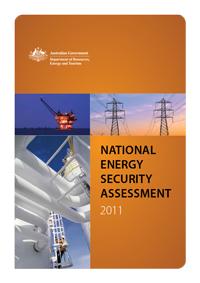 ,
, 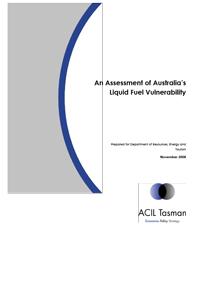
Date
Description
The NESA identifies the current strategic energy security issues in the liquid fuels, natural gas and electricity sectors, and those posing a potential risk in short term, medium term and longer term. The Government has indicated that the NESA will provide a key input into the development of future…Date
Description
The ACCC releases its Formal Monitoring Reports each year ('Monitoring of the Australian petroleum industry-report of the ACCC into the prices, costs and profits of unleaded petrol in Australia').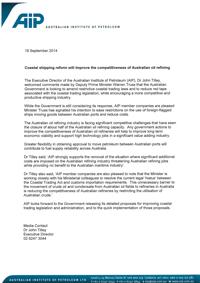
Date
Description
The Executive Director of the Australian Institute of Petroleum (AlP), Dr John Tilley, welcomed comments made by Deputy Prime Minister Warren Truss that the Australian Government is looking to amend restrictive coastal trading laws and to reduce red tape associated with the coastal trading…Date
Description
The ACCC releases its Formal Monitoring Reports each year ('Monitoring of the Australian petroleum industry-report of the ACCC into the prices, costs and profits of unleaded petrol in Australia').Date
Description
The ACCC releases its Formal Monitoring Reports each year ('Monitoring of the Australian petroleum industry-report of the ACCC into the prices, costs and profits of unleaded petrol in Australia').